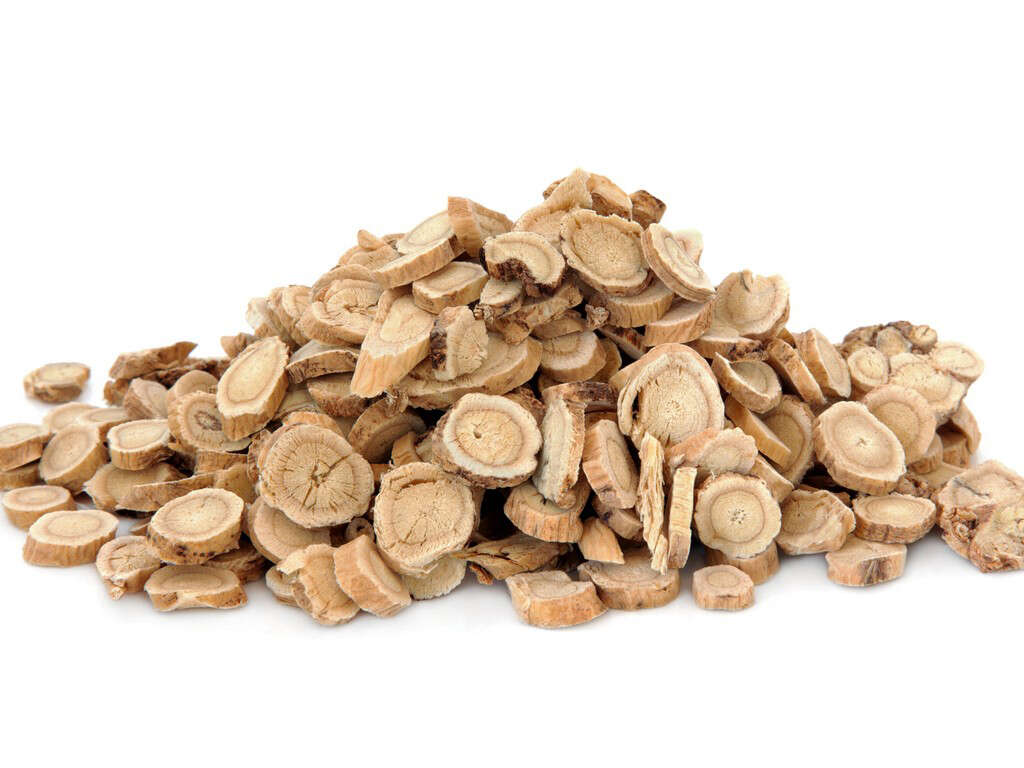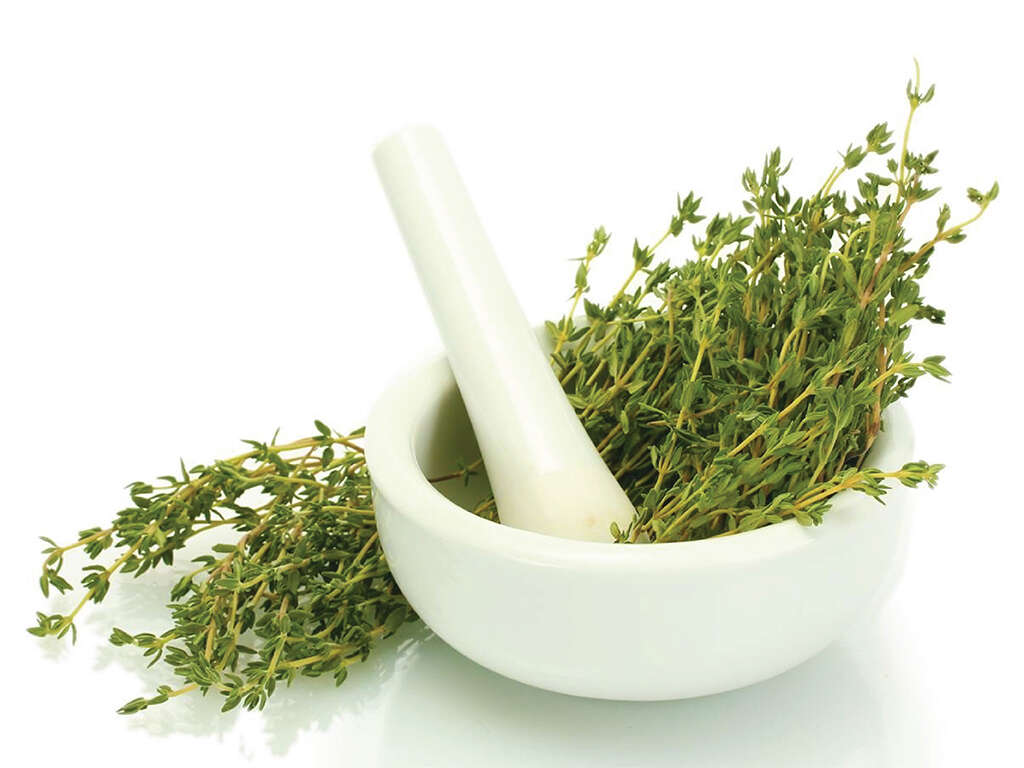10 Benefits of Sage
Sage is an herb that can be found in various parts of the world. Scientifically known as Salvia officinalis, the herb has a strong aroma and an earthy flavor. Therefore, the herb is only needed in small amounts.
Typically, it is used in savory dishes such as with pork, beef, duck, or chicken. In Italy, the herb is chopped and mixed with melted butter and stirred in pasta. Sage belongs in the same family as oregano, lavender, rosemary, thyme, and basil.
Sage has been used for medicinal benefits for years. Its uses are very well documented and it was initially used for snake bites, protecting against evil, boosting fertility, and fevers. Modern research has discovered many health benefits of the herb. Some of these benefits will be outlined in this article.

Benefit #1: Boosts Cognition
Everyone could benefit from improving their memory. Especially those of us who are juggling work, personal lives, and a myriad of numerous things. Sage has been shown to help increase recall abilities and memory attention. It has also been associated with decreasing the effects of Alzheimer’s.
In a study featured in the Journal of Clinical Pharmacy and Therapeutics, the effects of sage on Alzheimer’s was investigated. In this study, patients with mild to moderate Alzheimer’s disease aged between 65 to 80 were given sage extract for 4 months. In comparison to the placebo group, improved cognitive functions were observed in the experimental group.

Benefit #2: Treats Inflammation
Sage may have some anti-inflammatory properties. This is a huge health benefit as numerous diseases result due to over inflammation, such as arthritis, gout, asthma, and gastrointestinal diseases.
Chewing on sage leaves, although not the most pleasant remedy as the flavor can be quite intense, is one of the most effective ways to get the organic compounds acting in your system. Also, seeping the leaves into a tea is also a very effective way to get the herb into your system. The anti-inflammatory property of sage is believed to come from the flavonoids and phenolic compounds found the leaves. In one study, looking at the topical anti-inflammatory activity of Salvia officinalis, they found that some of the leaves’ anti-inflammatory properties were attributed to ursolic acid. In their study, they found the compound effect to being two-fold more effective than some of the other compounds.

Benefit #3: Antioxidant
Chronic conditions and degenerative disease can be very difficult to manage. Not only for the individual, but for the families involved as well. Numerous studies have linked the cause of many disease to the presence of free radicals. Free radicals are the dangerous by-products of cellular metabolism that attack healthy cells, causing apoptosis or mutation. Free radicals are dangerous because due to their unfilled valence electron shell, they scavenge the body for electrons.
According to a study in the Journal of Agricultural and Food Chemistry, the antioxidant compounds found in sage, such as rosmarinic acid, luteolin, and apigenin, can work to neutralize free radicals and prevent them from creating oxidative stress in the heart, organ systems, skin, joints, muscles, and even the brain.

Benefit #4: Improves Bone Health
Bone health is crucial to avoid osteoporosis. One of the benefits of sage that is often overlooked is its positive health impact on bone health. Sage has a significant amount of vitamin K. Though not often cited as a nutrient necessary for bone health, vitamin K in fact does play a role in good bone health. Vitamin K is involved in keeping calcium in the bones and not in the bloodstream. Research shows that people who consumed the most vitamin K have a 50% reduced risk of arterial calcification.
Therefore, adding vitamin K to your diet can be beneficial. One serving of sage will provide you with 27% of the recommended intake for the nutrient.

Benefit #5: Skin Care
In addition to its use as an herb and raw leaves, sage can also be used as part of your skin care routine. When extracted and used as cream, sage has been seen to help with acne, psoriasis, and eczema. It is believed sage is beneficial at reducing the appearance of these issues due to its anti-inflammatory properties.
In addition, test tube studies have recently linked sage to fighting wrinkles. In a clinical trial, visually assessed changes and several wrinkle parameters were statistically different between the test and control groups after just 12 weeks.

Benefit #6: High in Several Nutrients
Sage is a great addition to the diet because it is so high in nutrients. In addition, it is so low in calories and it can be added to any diet plan. In just one serving of sage, you will receive 2 calories, 1.1% RDA for iron, vitamin b6, calcium, and manganese, and only trace amounts of fat and carbohydrates.
In addition, sage also contains magnesium, zinc, copper, and vitamin A; however, these are trace minerals but all incredibly important for numerous metabolic reactions in the body. In addition, sage contains caffeic acid, chlorogenic acid, and rosmarinic acid. All of which contain a myriad of beneficial health effects. Also, just one serving is packed with so much flavor.

Benefit #7: May Support Oral Health
Many people do not have a proper dental hygiene routine. Without a proper routine, the buildup of bacteria can occur. This can lead to gingivitis, advanced gum disease, and periodontal disease. For those who need to up their dental hygiene routine, adding sage-based toothpaste or mouthwash can help kill off lurking microbes.
One study found that a sage-based mouthwash was shown to effectively kill Streptococcus mutans. This bacterium is known to be the cause of cavities. In another study, a sage-based essential oil was used to kill and stop the spread of Candida albicans. This is a fungus that is known to cause cavities.

Benefit #8: May Ease Menopause Symptoms
Menopause is a part of the life cycle that typically occurs to women around the age of 48 to 55, with the overall average age being 51. During menopause, the body decreases the amount of estrogen. With this hormonal change, the body may undergo unpleasant symptoms. Some of these symptoms include hot flashes, excessive sweating, vaginal dryness, and irritability.
These symptoms and severity vary from women to women. However, for many women, these side effects are unpleasant. Fortunately, sage maybe able to ease some of these symptoms. It is believed sage has similar properties to estrogen. This allows sage properties to bind to certain receptors in the brain to help ease hot flashes and sweating.

Benefit #9: Sore Throat Medication
No one likes dealing with a cold or sore throat. Another benefit of sage is its potential protective effects against sore throats and the common cold. One common way people use sage is by seeping just a teaspoon of sage in water for 30 minutes. Gargle the liquid solution and it should help relieve your sore throat. A 2009 study found sage to being as effective as some sore throat medications.
In addition, sage is fairly cheap and can be purchased at many grocery stores. Because it is potent, only small amounts are used at a time. Thus, it will likely last quite some time in your cabinet.

Benefit #10: Helps with Sleep
Sage is rich in antioxidants and vitamins that have numerous health benefits, such as manganese. Manganese is an essential cofactor in many enzymes essential in antioxidant defense.
In addition, sage is also rich in magnesium. Magnesium is a mineral that is linked to improving the duration and quality of sleep. Moreover, sage also helps reduce insomnia and other sleep disorders. Thus, for those individuals whom have trouble sleeping at night, sage-infused tea may potentially be of some help.












